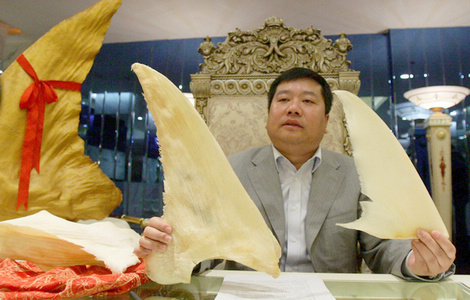 |
|
|
|
|||||||||||
As the economic powerhouse of China, Guangdong has more than its fair share of factories. But during my three-month stay in the southern province last year, I experienced an equally ubiquitous feature - from the lips of provincial policymakers to street-side subcontractors, "upgrading" was the business buzzword of the day.
Guangdong's manufacturing sector is the main reason why China is known as "the factory of the world". The factories in its Pearl River Delta, fueled initially by Hong Kong and Taiwan investment, churn out the cheap exports that have led the country's impressive economic growth in the past three decades.
But many know this model is not sustainable: whether it is rising labor and material costs, yuan appreciation pressures, exposure to the vagaries and troubles of foreign markets or environmental degradation, Guangdong's manufacturers realize they must quickly move up the value chain to survive.
During the country's "two sessions" this year, many legislators and advisers will also have to face these challenges that extend beyond Guangdong to the rest of the country. The timing could not have been better because, more than anything else, the political will remains crucial in taking China's economy to the next stage of development.
The public and private sectors in the province are already involved in major new projects to that effect.
A "biotech island" in the provincial capital, Guangzhou, aims to attract foreign and local enterprises to develop the pharmaceutical, genomics, stem cell and other biomedical sectors to expand the high-tech and tertiary industries.
Similarly, "Guangzhou Knowledge City", a government-to-government project with Singapore, aims to grow the IT convergence, biotechnology and pharmaceuticals, energy and environmental technology, and education and training sectors.
Others are calling for more to be done, including greater investment in education to attract the requisite talent, improvements in transport and infrastructure to facilitate the smoother flow of goods and services in the delta region, and further subsidies and incentives for businesses to innovate and build on their strengths.
Larger businesses are also grappling with ways to build their brands. Many Guangdong factory owners who made their initial fortunes as original equipment manufacturers realize they need to create and not just make, amid broader efforts to shift an export-oriented Chinese economy to one led more by domestic consumption.
Some of these moves are already bearing fruits. Latest figures show that Guangdong's industrial output for the domestic market has increased while its reliance on exports and foreign trade has fallen.
The province itself has always been regarded as a bellwether of the country's economic and social changes, and its moves to upgrade and reinvent itself are being replicated in many other areas that are heavily reliant on export industries, most notably in the developed coastal regions of Jiangsu and Zhejiang provinces.
Similar to Guangzhou's efforts to develop "hubs of innovation" like its biotech island and knowledge city that draw on the mature supply chains of the delta region and help them grow in tandem, Jiangsu can tap Shanghai's Zhangjiang High-Tech Park and Zhejiang has the Hangzhou High-Tech Zone.
While the sheer size and scale of the country mean no single model can be applied to the economic transformation of these regions, all eyes will continue to be on Guangdong to see if it can be a pioneer once again - this time by fully and successfully translating "upgrading" into real action.
The author is a senior writer with China Daily.
Wu Ying, iPad, Jeremy Lin, Valentine's Day, Real Name, Whitney Houston, Syria,Iranian issue, Sanyan tourism, Giving birth in Hong Kong, Cadmium spill, housing policy

|

|

|

|

|

|